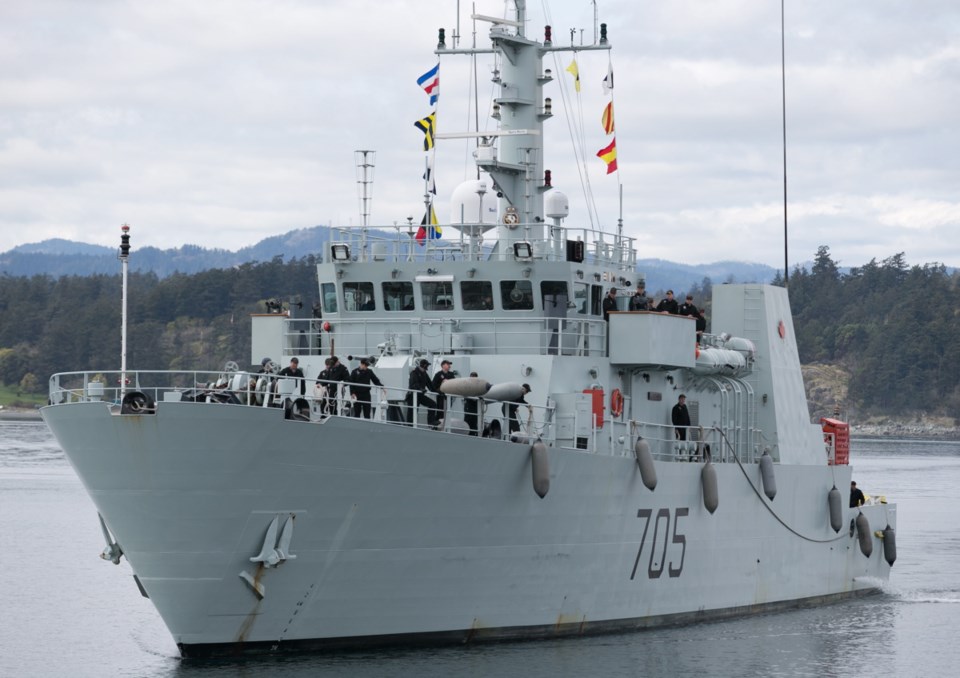The Royal Canadian Navy said the recall of HMCS Whitehorse marked the first time in its history a ship was sent home due to the bad behaviour of the crew.
But it’s not the first time a navy ship has been called home to Canadian Forces Base Esquimalt.
“The circumstances are quite different, but HMCS Uganda was recalled from World War II,” said Ron Armstrong, a marine historian in Victoria.
HMCS Whitehorse arrived in Esquimalt on Monday. The vessel was called home from naval exercises off the coast of San Diego after three reported incidents of misconduct — one involving the arrest of a sailor — between June 28 and July 4.
In April 1945, HMCS Uganda (later renamed Quebec) was in the midst of defending Allied forces with the British Pacific Fleet.
As the war was ending, Canadian Prime Minister William Lyon Mackenzie King made a bold move to assure the public all overseas service was voluntary. He compelled those serving — the majority reservists — to vote on whether to return home or stay at sea.
“That’s never happened in history, where a fighting crew was asked if they should stop fighting,” Armstrong said. “They didn’t want to vote, but they had to, so they voted honestly.”
Armstrong said the vote was divided among the ship’s officers who wanted to stay and fight and sailors who felt they should go home. The final vote was 300 to 605 in favour of leaving the mission, so Ottawa called the ship back to Esquimalt.
“Ottawa announced to the press that they were having the vote so many of the guys’ sweethearts and wives wrote them to say, ‘You’ve done your bit,’ ” Armstrong said. “They were quite bitter to be put in that position.”
Before leaving, HMCS Uganda assisted in defence against Japanese kamikaze attacks. But when they stopped in Pearl Harbor, the crew was met with a cool reception amid reports a mutiny had taken place.
“This was absolutely not true but a cloud hung over them since,” said Armstrong, who met with survivors of the crew in Victoria in the late 1990s.
Armstrong said sailors are infamous for getting in trouble ashore — the reason there are shore patrols and disciplinary measures — but an entire ship being returned home is rare.
“To recall a ship, the vice-admiral must have felt something was wrong with the leadership or [that the trouble was] symptomatic of something else,” he said.
Cmdr. Hubert Genest, head of navy public affairs in Ottawa, said there have been incidents where the inappropriate actions of individuals have led to them being recalled from duty — such as in the case of former brigadier-general Daniel Ménard, whose Afghanistan duty was cut short in 2010 after it became known he had sex with a female subordinate.
“But a ship operates as a unit,” said Genest, who said that the misconduct of Whitehorse crew was seen as a tipping point by leadership concerned about ongoing issues of behaviour in the navy. “There’s a possibility we have nothing to change in our policies, but to be sure we have to go through a process and act on facts,” he said.
An officer has been appointed to review allegations of misconduct. Initial findings are expected in the fall.



